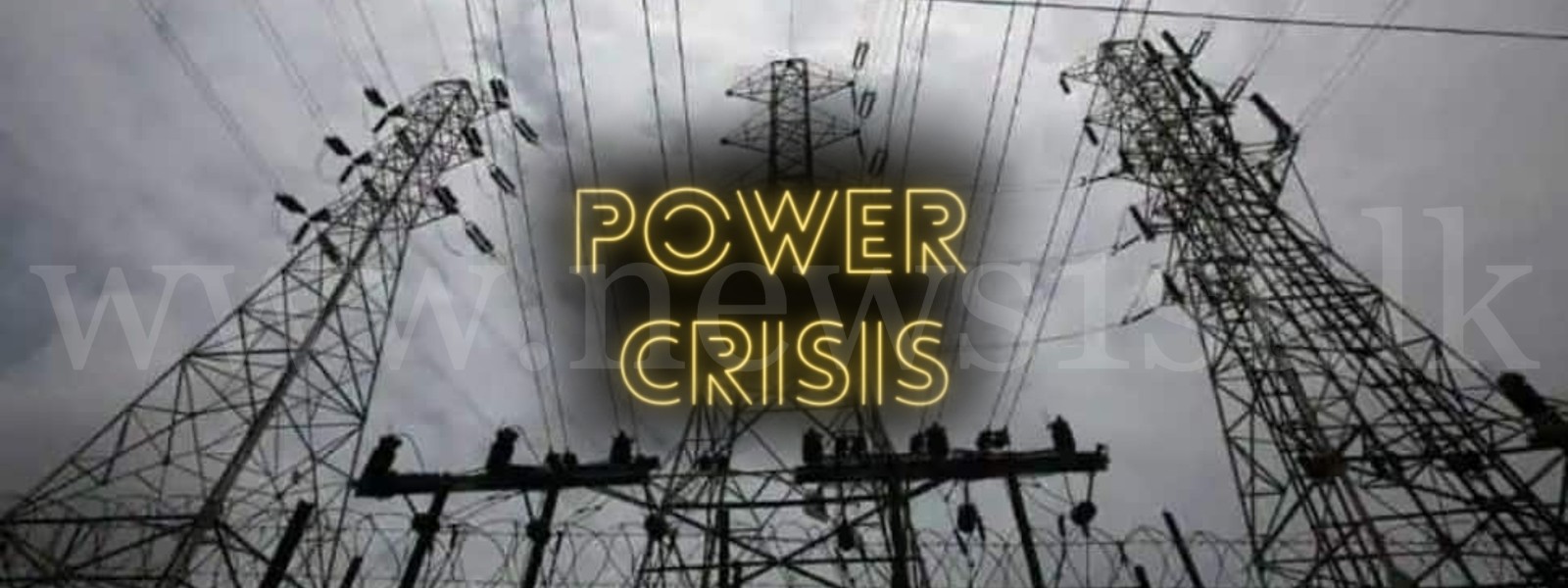.webp)

Sri Lanka's Power Crisis: PUCSL says NO to power cuts, but CEB goes ahead
COLOMBO (News 1st); The Chairman of the Public Utilities Commission of Sri Lanka, Janaka Rathnayake states that the PUCSL has suggested to the CEB to use their standby Generators to generate electricity between 6:00 and 9:00 tonight (01) and not to impose power cuts.
The PUCSL Chairman also requested consumers to reduce their electricity consumption for the day, as otherwise the CEB will have to go for a 10 to 15 minute power cuts locally to balance the national system.
The Ceylon Electricity Board (CEB) cut off power supply to several coastal areas including Wattala from 2.30 pm to 3.30 pm on Tuesday (01), despite a PUCSL Spokesperson stating that the commission has not granted its approval for the power cut.
Losing power?
Generator Number 3 of the Norochcholai power complex, with a capacity of 270 megawatts which had been out of the system for nearly a month and added to the system only on Monday (31), suddenly failed again on Tuesday morning (01).
The Kelanitissa Sojitsu power plant of 130 megawatts has been out of service for several days due to repairs.
The Colombo barge-mounted power plant and the Sapugaskanda Power Plant have also been unable to generate electricity due to a shortage of fuel.
The capacity of the two power plants is 104 megawatts .
Accordingly, the total capacity lost at thermal power plants is 484 megawatts .
The Electricity Board forecasts that the maximum power requirement for tonight will be 2,750 megawatts .
Contrary to water management structures, only 1,242 megawatts are generated by hydropower plants to meet tonight's demand, while only 1,177 megawatts are generated by thermal power plants.
Accordingly, thermal power plants will be utilized to meet the electricity demand during peak hours tonight.
Petroleum shortage
As the water level in the reservoirs associated with the power plants has decreased, there has been a shortage of about 200 MW in the national power supply system for the past one month.
In addition to the failure of the thermal power plants this time, the main issue which arose from time to time was the lack of fuel required for those power plants.
Last week, the President instructed the Treasury to settle the Rs. 93 billion of debt owed by the Ceylon Electricity Board (CEB) to the Ceylon Petroleum Corporation (CPC) to maintain the power supply.
However, today, the problem of petroleum shortage is not solved.
Private power to the rescue
Against this backdrop, the Minister of Power and Energy on Monday (31) sought Cabinet approval to enter into three-year emergency power purchase agreements with three private power plants.
The capacity of the three power plants which caused a great deal of controversy in the recent past is 170 MW.
Of these, two power plants can only run on fuel.
The three-year agreement between the three power plants expired last April, and when permission was sought to renew them previously, the three-member Cabinet Sub-Committee recommended that the three plants be contracted for a period of six months only.
The last agreements reached with the three power plants were not approved by the PUCSL while the Auditor General and the COPE Committee have emphasized that those agreements are illegal.
What is the main issue at the moment?
Janaka Ratnayake, the Chairman of the PUCSL states that even if the country has to buy emergency electricity, diesel plants will be utilized.
"The main issue we have at the moment is the lack of diesel. Electricity is not an issue. We have enough generators. The problem we have is the lack of crude oil. If there is crude oil we do not need to buy electricity, and would have not faced this issue," he stated.
Other Articles
Featured News





.png )

-793492-797918_550x300.jpg)
-797911_550x300.jpg)








-797273_550x300.jpg)


















.gif)